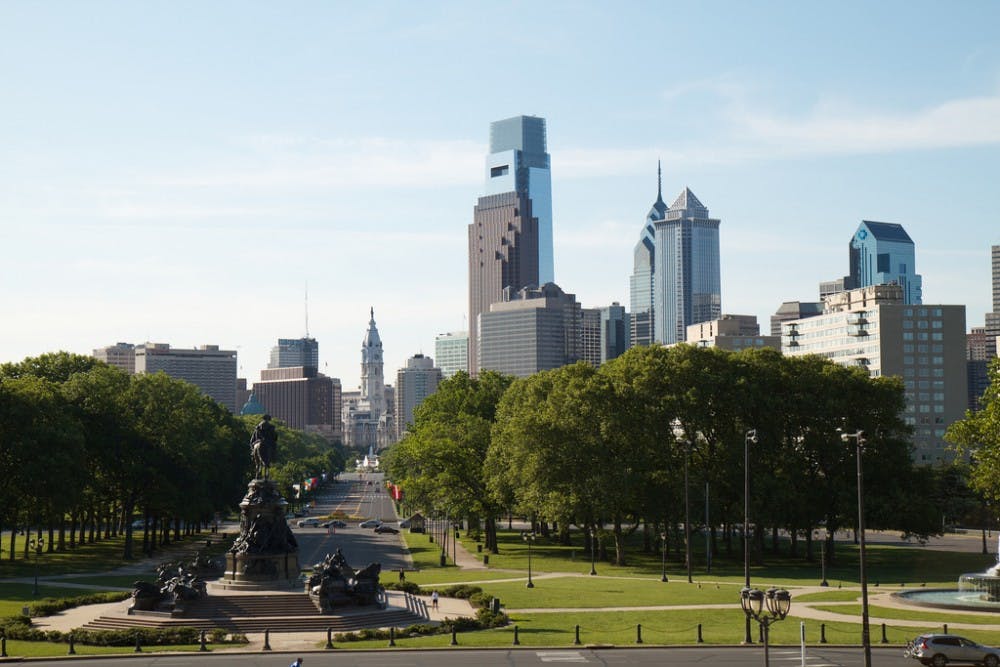
Mayor Jim Kenney recently signed a law reverting Philadelphia to a sanctuary city, which would benefit immigrants and refugees. (Courtesy of Rob Shenk | Creative Commons)
On Jan. 4th, Mayor Jim Kenney signed a law that no longer allows Philadelphia law enforcement and federal Immigration and Customs Enforcement officials to cooperate, reverting Philadelphia back to a “sanctuary city.”
Before the executive order, ICE could ask city police to hold onto undocumented immigrants who would have been released while awaiting trial. The undocumented immigrants would then be kept in police custody until ICE picked them up and faced potential deportation. Previous mayor, 1979 Wharton graduate Michael Nutter, made Philadelphia a sanctuary city before reversing his own decision in late 2015.
Penn Democrats Communications Director and College junior Luke Hoban supports Mayor Kenney's plan and believes that Philadelphia needs to have some role in helping immigrants and refugees.
“Whatever measures that need to be taken should be implemented to make sure immigrants are not forced back to regions of the world that they are fleeing and giving up their lives in many cases, in hope of resettling here to provide a better life for themselves and their children," Hoban said.
United States Department of Homeland Security Secretary Jeh Johnson, who promotes a program called "Priority Enforcement” that has been decried by immigrant advocacy groups as overly aggressive, has worked with Kenney to switch programs. Until these discussions take place, Kenney told The Philadelphia Inquirer that Philadelphia will not force cops to cooperate with the ICE.
Other sanctuary cities in the United States include New York City, Baltimore and Washington D.C.. However, the Brookings Institution found in 2014 that Philadelphia is one of the "re-emerging gateways" in America due to a resurgence in the amount of immigrants entering the city each year.
Proponents of Philadelphia as a sanctuary city say that it improves relations between the community and the police. For example if an undocumented immigrant is a witness of crime, they will be able to report the crime without fear of deportation. Proponents also reason that being a sanctuary city encourages immigration to cities, which can benefit the city's economy.
A 2012 study by the Partnership for a New American Economy found that immigrants start 28 percent of small businesses even though they make up only 12.9 percent of the United States population.
Opponents of sanctuary cities noted the fact that there have been instances in which undocumented immigrants have committed serious crimes. For example, many Republican presidential candidates, such as 1968 Wharton graduate Donald Trump, called to crack down on sanctuary cities after the death in July of Kathryn Steinle, a woman in San Francisco who was shot by an undocumented immigrant who had been released from jail.
For other opponents, their criticism of sanctuary cities stems from the problem it poses for law enforcement and public policy officials.
“Sanctuary cities reduce federal immigration law to optional pieces of policy and impede the prospects of more meaningful and effective reforms that our country desperately needs," College Republicans President and Wharton and College junior Jennifer Knesbach said.
The Daily Pennsylvanian is an independent, student-run newspaper. Please consider making a donation to support the coverage that shapes the University. Your generosity ensures a future of strong journalism at Penn.
DonatePlease note All comments are eligible for publication in The Daily Pennsylvanian.





